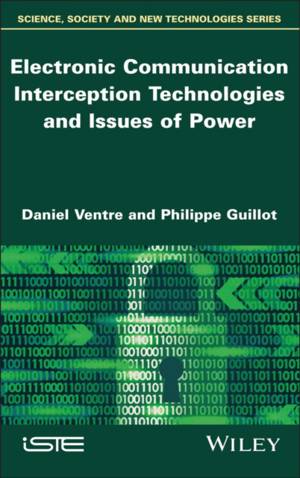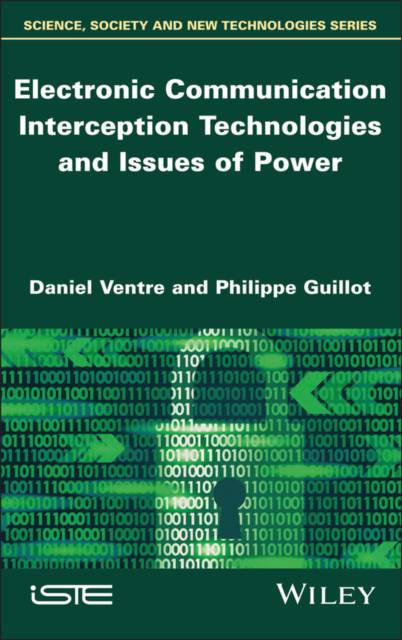
- Afhalen na 1 uur in een winkel met voorraad
- Gratis thuislevering in België
- Ruim aanbod met 7 miljoen producten
- Afhalen na 1 uur in een winkel met voorraad
- Gratis thuislevering in België
- Ruim aanbod met 7 miljoen producten
Electronic Communication Interception Technologies and Issues of Power
Daniel Ventre, Philippe GuillotOmschrijving
In cyberspace, data flows transit massively and freely on a planetary scale. The generalization of encryption, made necessary by the need to protect these exchanges, has resulted in states and their intelligence services forgoing listening and interception missions. The latter have had to find ways to break or circumvent this protection.
This book analyzes the evolution of the means of communication and interception, as well as their implementation since the advent of the telegraph in the 19th century. It presents this sensitive subject from a technical, historical and political perspective, and answers several questions: who are the actors of interception? Who has produced the recent technologies? How are the markets for interception means organized? Are the means of protecting communications infallible? Or what forms of power do interceptions confer?
Specificaties
Betrokkenen
- Auteur(s):
- Uitgeverij:
Inhoud
- Aantal bladzijden:
- 256
- Taal:
- Engels
Eigenschappen
- Productcode (EAN):
- 9781786308023
- Verschijningsdatum:
- 3/10/2023
- Uitvoering:
- Hardcover
- Formaat:
- Genaaid
- Afmetingen:
- 156 mm x 234 mm
- Gewicht:
- 539 g

Alleen bij Standaard Boekhandel
Beoordelingen
We publiceren alleen reviews die voldoen aan de voorwaarden voor reviews. Bekijk onze voorwaarden voor reviews.












